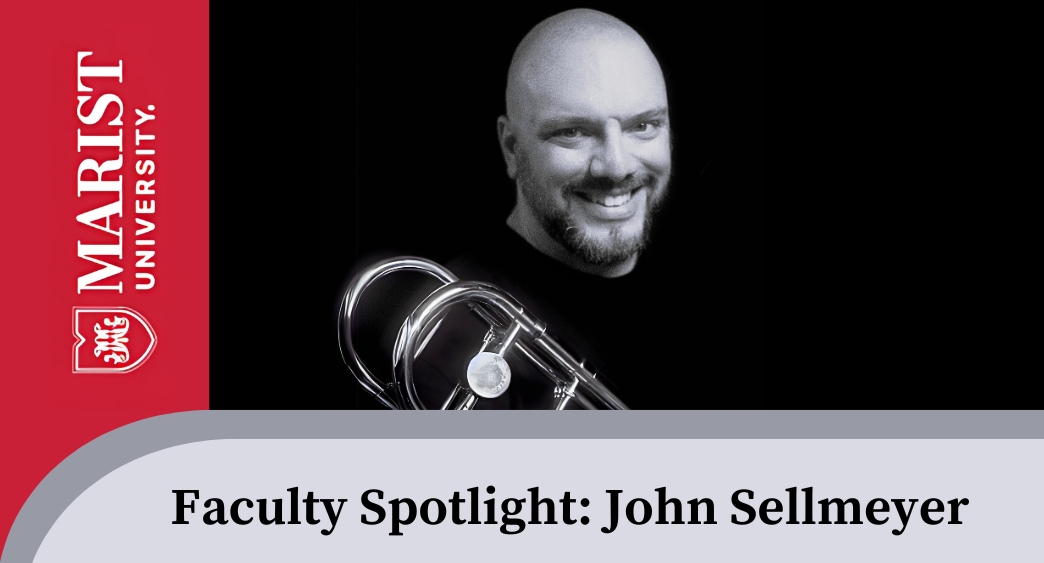Faculty Spotlight
Explore how our team collaborates with faculty to promote innovative teaching practices and enrich the learning experience at Marist.

Faculty Spotlight: John Sellmeyer
In this insightful conversation, John Sellmeyer, Accommodations Coordinator and adjunct music faculty, shares his journey and practical strategies for embedding accessibility into course design. With a background in music performance and nearly a decade of experience in accessibility services, John emphasizes the importance of proactive, inclusive design in education.
“Accessibility isn’t just for students with documented disabilities.
Planning with accessibility in mind helps all students" -John Sellmeyer
He firmly believes that accessibility is not just for students with disabilities but benefits all learners, including international students and those with diverse learning styles. John advocates for early planning, explaining that incorporating accessibility features from the beginning of course design saves time and effort later on.
A strong proponent of practical tools, John highlights the built-in accessibility checkers available in Microsoft Word, PowerPoint, Adobe, and Brightspace, which help ensure content is accessible to all students. He also stresses the importance of providing multimedia content with accurate captions and transcripts, reminding colleagues that auto-captions are only a starting point and should always be reviewed for accuracy.
John’s approach to accessible document design—using proper headings, styles, and alt text—helps create content that is both usable and efficient. His advice to fellow faculty is to take incremental steps towards accessibility, improving one aspect at a time, rather than striving for perfection all at once. John Sellmeyer recommends educators gradually build a more inclusive and accessible classroom for all students.
“It doesn’t have to be 100% perfect right away. Pick one thing that you can fix and fix it. Then build from there.”
Through his work, John inspires others to view accessibility as an ongoing process, one that enhances the educational experience for everyone.
Key Takeaways:
- Accessibility is Equity: John highlights that accessibility is not just for students with disabilities, it benefits all learners, including international students and those with different learning preferences.
- Start Early: Designing with accessibility in mind from the beginning simplifies the process and reduces the need for later accommodations.
- Tools Matter: Built-in accessibility checkers in Microsoft Word, PowerPoint, Adobe, and Brightspace are essential tools for faculty.
- Multimedia Accessibility: John uses transcripts and captions for video content, stressing that auto-captions are a starting point, not a final solution.
- Document Design: Creating accessible documents from the outset—using styles, headings, and alt text, saves time and ensures usability.
- Faculty Support: He encourages colleagues to take “baby steps” toward accessibility, improving one element at a time.
Stay tuned for the full interview with John Sellmeyer, where he delves into Accessibility in content design.
Fun Facts - Accessibility Edition
“Built-in accessibility checkers in Microsoft Word, PowerPoint, Adobe, and Brightspace are essential tools for faculty." -John Sellmeyer
Fun Facts - Accessibility Edition
Interested to be featured in the Spotlight? Fill out the form, and our team will be in touch soon to showcase your work!
Click here for the form
Faculty Spotlight: Rob Egan
Rob Egan uses a three-step process using intelligent agents to automate student communications, to help students with timely interventions, and access to support mechanisms and may assist with student retention strategies.
Contact Us
If you have any questions or need further assistance with the tool, please don’t hesitate to contact us at 845-575-3572.








